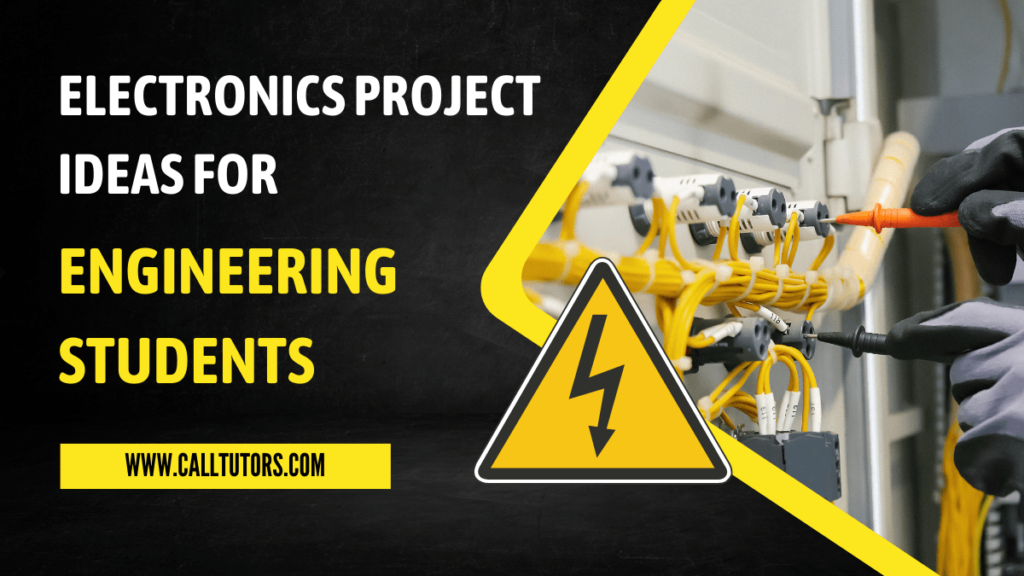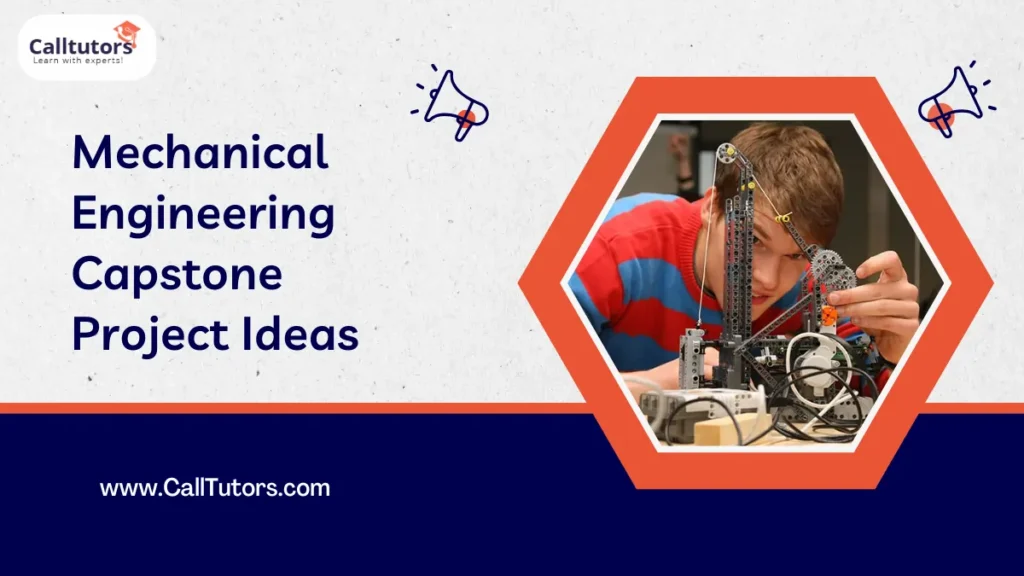In the field of electronic engineering, doing hands-on projects is super important. These projects help you learn practical skills and understand theory better. We’ve got more than 130 different project ideas for you to try out.
They cover lots of different topics in electronic engineering, from easy stuff like LED circuits to more complex things like quantum measurement systems.
Each project idea is labeled with its difficulty level, so you can pick one that matches what you’re comfortable with. We also want to make sure you plan your project well, stay safe while working on it, and keep good records of what you’re doing.
This not only helps you learn the technical side of things but also makes you better at solving problems.
By working on these projects, you’ll get hands-on experience with electronic parts and circuits. Plus, you’ll get better at thinking critically and being creative.
These projects help you put what you’ve learned in theory into practice, getting you ready to tackle real-world problems in electronic engineering. They’re a great way to build up the skills you need to succeed as an engineer.
Important Things to Remember Before Starting Electronics Projects
Table of Contents
Here are 7 important things/key points to keep in mind before starting electronics projects:
- Clearly define what you want to achieve with your project.
- Learn the necessary concepts and theories through research.
- Plan your project well, including a timeline, materials, and circuit diagrams.
- Have all the needed components, tools, and workspace ready.
- Follow safety guidelines when working with electrical parts.
- Allow enough time for the project, considering possible setbacks.
- Document your process, test your work, and be ready to fix any problems.
When you’re working on electronics projects, it’s important to remember some important things to make sure your project goes well and is safe. Here’s a list of over 130 great electronics project ideas for engineering students in 2024.
130+ Best Electronics Project Ideas For Engineering Students (2024)
Here are electronic engineering project ideas categorized based on various subjects within electronic engineering, ranging from easy to hard levels.
Analog Electronics Project Ideas
Easy:
13. Amplifier Circuit
14. Voltage Regulator
15. Transistor Amplifier
16. Rectifier Circuit
Medium:
17. Active Filter Design
18. Oscillator Circuits
19. Analog-to-Digital Converter
20. Phase-Locked Loop
Hard:
21. Mixed-Signal Circuit Design
22. High-Speed Analog Circuit Design
23. Analog VLSI Design
24. Noise Analysis and Reduction Techniques
Control Systems Project Ideas
Easy:
25. Temperature Controller
26. Motor Speed Controller
27. Light Intensity Controller
28. Servo Motor Control
Medium:
29. PID Controller Implementation
30. Inverted Pendulum Control
31. Robotic Arm Control
32. Drone Stabilization Control
Hard:
33. Adaptive Control Systems
34. Robust Control Systems
35. Model Predictive Control
36. Optimal Control Systems
Power Electronics
Easy:
37. Rectifier Circuit
38. DC-DC Converter
39. Inverter Circuit
40. Solar Charge Controller
Medium:
41. Switching Power Supply
42. Uninterruptible Power Supply (UPS)
43. Power Factor Correction Circuit
44. BLDC Motor Drive
Hard:
45. High-Voltage Power Converter
46. Multilevel Inverter Design
47. Power Electronics for Renewable Energy Systems
48. Wireless Power Transfer System
Communication Systems
Easy:
49. Infrared Remote Control
50. Wireless Audio Transmitter and Receiver
51. RF Transmitter and Receiver
52. Bluetooth-based Communication
Medium:
53. Frequency Modulation (FM) Transmitter
54. Software-Defined Radio
55. Antenna Design and Testing
56. Satellite Communication System
Hard:
57. Optical Fiber Communication System
58. Multiple-Input Multiple-Output (MIMO) Systems
59. Cognitive Radio Systems
60. 5G/6G Communication System Design
Embedded Systems
Easy:
61. LED Blinking
62. Sensor Interfacing
63. Keypad and LCD Integration
64. Motor Control
Medium:
65. IoT-based Home Automation
66. Gesture-Controlled Robot
67. Biometric Authentication System
68. Wireless Sensor Network
Hard:
69. Real-Time Operating System (RTOS) Implementation
70. Automotive Embedded Systems
71. Artificial Intelligence on Embedded Devices
72. Secure Embedded System Design
Microelectronics And VLSI Design
Easy:
73. Basic Logic Gate Design
74. Adder and Subtractor Circuits
75. Multiplexer and Demultiplexer Design
76. Flip-Flop Implementation
Medium:
77. Memory Design (RAM, ROM)
78. Arithmetic Logic Unit (ALU) Design
79. Finite State Machine Implementation
80. RISC Processor Design
Hard:
81. Cache Memory Design
82. Pipelined Processor Design
83. Application-Specific Integrated Circuit (ASIC) Design
84. Hardware-Software Co-Design
Signal Processing
Easy:
85. Audio Amplifier Circuit
86. Active Filter Design
87. Waveform Generator
88. Spectrum Analyzer
Medium:
89. Digital Signal Processing (DSP) Basics
90. Audio Noise Cancellation
91. Image Filtering and Enhancement
92. Speech Recognition System
Hard:
93. Adaptive Signal Processing
94. Radar Signal Processing
95. Biomedical Signal Processing
96. Software-Defined Radio Implementation
Electromagnetic Fields And Antennas
Easy:
97. Antenna Pattern Measurement
98. Waveguide Demonstration
99. Faraday’s Law Experiment
100. Electromagnetic Induction
Medium:
101. Microstrip Antenna Design
102. Metamaterial Antenna Design
103. Electromagnetic Shielding Techniques
104. Radar Cross-Section Measurement
Hard:
105. Phased Array Antenna Design
106. Frequency Selective Surface Design
107. Computational Electromagnetics
108. Metamaterial Absorber Design
Optoelectronics
Easy:
109. Optical Fiber Communication
110. LED and Photodiode Interfacing
111. Laser Pointer Communication
112. Optical Sensors
Medium:
113. Fiber Optic Sensor Design
114. Optical Amplifier Design
115. Optical Encoder and Decoder
116. Optical Waveguide Design
Hard:
117. Photonic Integrated Circuits
118. Quantum Optics Experiments
119. Optical Computing
120. Plasmonic Devices
Instrumentation And Measurement
Easy:
121. Digital Multimeter
122. Function Generator
123. Data Acquisition System
124. Temperature Measurement
Medium:
125. Oscilloscope Design
126. Spectrum Analyzer Design
127. Virtual Instrumentation
128. Precision Measurement Techniques
Hard:
129. Quantum Measurement Systems
130. Terahertz Instrumentation
131. Scanning Probe Microscopy
132. Atomic Force Microscopy
How To Present Your Electronic Project To Make It More Appealing
Here are 7 important tips for presenting your electronic project after finishing it:
- Make it Look Good: Create a presentation that’s visually attractive. Use clear diagrams, charts, and images to explain what your project does. This helps people understand and keeps their attention. It is so easy to create inspiring images; there are many design templates available to help you craft visually appealing and engaging content.
- Show it in Action: Do a live demonstration of your project. This lets people see how it works for real, which is more impressive than just talking about it.
- Write it Down: Write detailed instructions about how your project was made and how it works. Include diagrams, lists of parts, and any computer code you used. This helps others understand and maybe even copy your project.
- Talk About What’s Special: Explain what’s unique and cool about your project. Tell people what problem it solves, how you solved it, and why your solution is better than others.
- Answer Questions: Let people ask questions about your project. This helps them learn more and shows that you know your stuff.
- Let People Try it Out: Give people a chance to play with your project after your presentation. Set it up so they can touch it, ask questions, and learn more about how it works.
- Learn and Improve: Think about what went well and what didn’t with your project. Share what you learned and how you’ll use it in future projects. Remember, getting better at what you do is important.
FAQs
What are some mini electronics project ideas that you can try?
1. Dual-Voltage Rechargeable Torch Light.
2. GPS on ATmega.
3. PC-Based GPS.
4. Low Power Inverter.
5. LPG Leakage Detector.
6. Geyser Timer Circuit.
7. Automatic Off Timer For CD Players.
8. Doorbell Cum Visitor Indicator.
What are some final-year electronics project ideas?
1. Spider Robot for Spraying Pesticides and Cutting Grass
2. Smart Shopping Cart that Automatically Follows Customers
3. Underwater Communication System using Infrared Wireless Technology
4. Innovative Footstep Power Generator with RFID Charging Capability
5. Speed Controller for Induction Motors
6. Engine Lock System that Detects Alcohol Levels using Arduino
7. Covid Disinfection Box Controlled by Arduino



